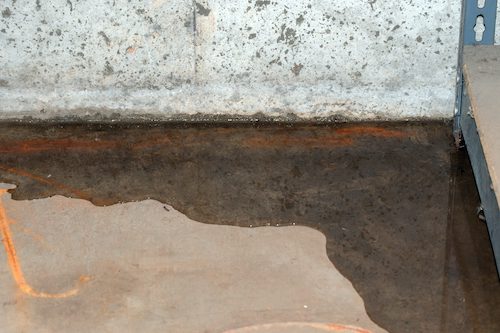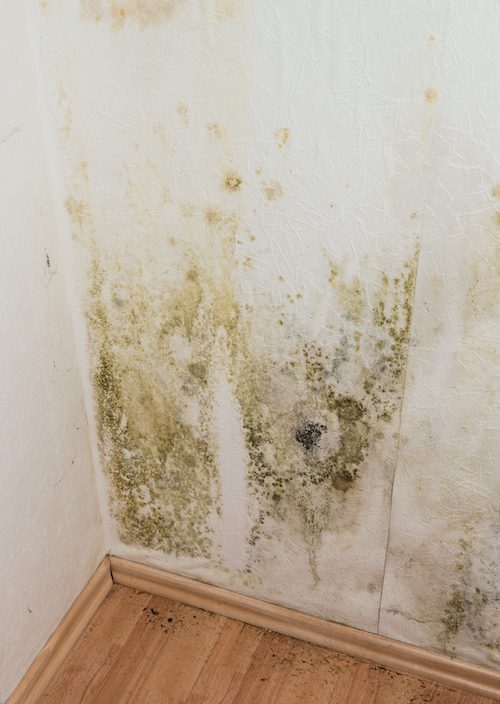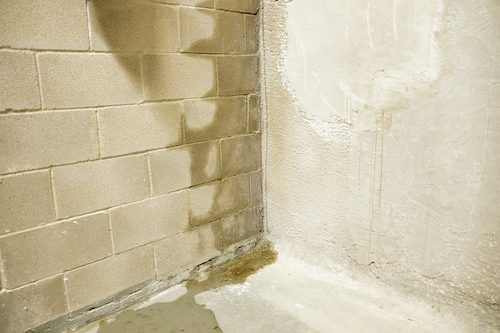Most people don't think about basement water leakage until they start seeing moisture on their walls or pooled water on their floors. Then, they think, "It's a basement. It always looks dark and musty because it's underground."
Be careful! This line of reasoning can leave you exposed to all sorts of problems associated with basement water leakage, the most serious being mold growth.
This article will discuss all the dangers of basement water leakage and what can happen when the situation gets out of control.

Nearly every basement has a water leak at some point. The basement is the lowest level of your home, so it's one of the first places to get wet when heavy rain or snow seeps into cracks and other weaknesses in your foundation.
Unfortunately, basement water leakage can be costly to repair; ignoring it can lead to significant structural damage if left untreated.
Some of the causes of basement water leakage include:
Regardless of the cause, all you need is one entry point for water to start seeping in and causing severe damage.
Basement water leakage can cause your home to flood, which can damage your belongings and even cause structural damage to your house. Additionally, in some cases, basement leaks can lead to mold growth, which can cause respiratory problems.

In the worst-case scenario, basement water leakage can lead to a significant mold problem. Making mold repairs and taking care of medical expenses are substantial costs, so it is essential to take basement leaks seriously.
In particular, black mold is a severe health hazard and should never be approached without proper safety equipment and breathing masks.
Some of the risks associated with mold growth include:
Basement water leakage can also cause structural damage. For example, the water can soak into your drywall or cause any rotting in any wood in your walls.
And, as if that's not bad enough, basement leaks can also increase your risk of electrical fires. All of these risks make it incredibly important to take measures to prevent leaks in the first place, like contacting a water damage professional at the first sign of a leak.
There are many ways you can prevent basement leaks from happening. For example, you should always make sure your pipes are well-maintained. During winter months, this could include adding insulation to exposed pipes so that they don't freeze.
You can also protect yourself from this issue by installing sump pumps (for the worst-case scenarios when water does enter your home) or adding layers of waterproofing insulation around windows and doors.
If you think you may be at risk for a basement water leakage issue, it's best to call in a professional to take a look and help you find ways you can prevent any damage. They can inspect your basement periodically for any cracks or other signs of wear and tear, as well as check your drainage system and basement sump pumps to make sure they're working correctly.
Ignoring basement water leakage can be costly and dangerous, so please don't take this problem lightly!
There are three main action steps you should take when you encounter basement water leakage:

This article's key takeaway: if basement leaks aren't dealt with quickly, the damages caused by leaks will only worsen over time!
The best way of preventing basement water leakage is regular maintenance on your pipes when winter comes around so they don't freeze. These basic steps can help you guard your house against mold growth and structural damage.
If you think you may be at risk for basement leaks, or have found water in your basement, contact a professional immediately who can help deal with the water before the damage worsens into something more severe like mold growth. Ignoring basement leakages could cost you money and put you and your loved ones in danger.
ER Contracting is Houston's premier water damage team. Reach out via our contact page, and one of your experts will help you take care of any issues you have with basement water leakage!